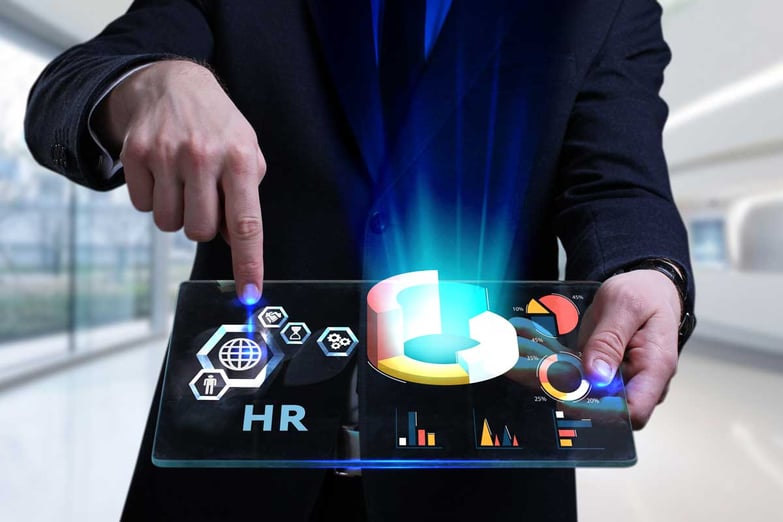The shift towards a digital workplace has been underway for some time. Paper memos and faxes, for example, gave way to email more than twenty years ago. But lately it feels like things have suddenly sped up. There's endless buzz around increased uptake of technology in the workplace, and it's leaving some managers and employees feeling like they’re playing an endless game of catch-up.

HR professionals, in particular, need to be aware of both the benefits and the risks involved in making the switch to digital. This applies not only to introducing digital HR processes, but also in an overall sense given the impact these kinds of changes will have on their organisation’s employees.
Changes to how and where we work
As digitally enabled workplaces gain prominence, more people have begun to work remotely on a regular or even full-time basis, teams are spread out across the world, and the line between work and personal time has become blurred.
In the next couple of years, the rollout of 5G networks across the world promises to make working on-the-go and outside of usual business hours a reality for many people. While this creates flexibility and can help people fit work in around family and leisure activities, it also means it could become harder to take a real break from work.
In a 2019 worldwide survey of remote workers, 40 per cent of respondents said the biggest benefit of remote work was increased flexibility. However, many of them also said they struggled to unplug from work and experienced loneliness and difficulties with communication.
Increased focus on data security and privacy
In the age of GDPR, the privacy and security of personal data is on everyone’s mind, and more people than ever understand their rights when it comes to what companies know about them. As such, they rightly expect the companies they deal with, as well as their employers, to respect those rights and comply with the law.
With digital networks getting faster all the time, the speed of data transfer has increased exponentially. Today, there is very little time to completely stop a data breach, even when discovered quickly. This means your systems need to be secure by design. While that might sound obvious, have you considered your HR and employee data? There are still plenty of companies keeping sensitive personnel data in unsecured spreadsheets or other less-than-secure systems.
Change management itself is changing
While it might be tempting to dive into deploying the latest technologies, relying on staff you already have to handle the change, there is a bigger picture to think about. For companies to keep up with their competitors – both with regards to their customers and to be seen as a desirable employer – it’s best not to rush into sudden change for the sake of change. To embrace the digital revolution, you should consider how everyone in the organisation will process and incorporate the change.
There has been a 6% increase in the number of permanent change management positions since 2011, with this number expected to rise as the discipline of change management matures and is recognised more widely. While today many change leaders take on the responsibility of change management as part of their current role, the fact that whole positions devoted entirely to change management are becoming more common is indicative of something bigger. Namely, that change is happening so quickly and so often, that specific expertise is needed to handle this constant state of change well.
All this has a lot to do with the workplace digital revolution. Companies that successfully manage the shift to new technologies understand that technology itself is only one part of the solution. Getting employees on board with the reasons for, and benefits of the change is the bigger challenge – and the most important one to get right.
Getting started with big-picture change
If you’re not sure where to start with preparing your employees for a change to their work situation, you’re not alone. Not everyone has a dedicated change manager – or knows how to convince upper management of the need for one.
That’s why we put together a simple yet comprehensive guide to change management with HR digitalisation in mind. Download our e-book, Change Management for Good, below to take some of the guesswork out of introducing a new way of working in your organisation.

